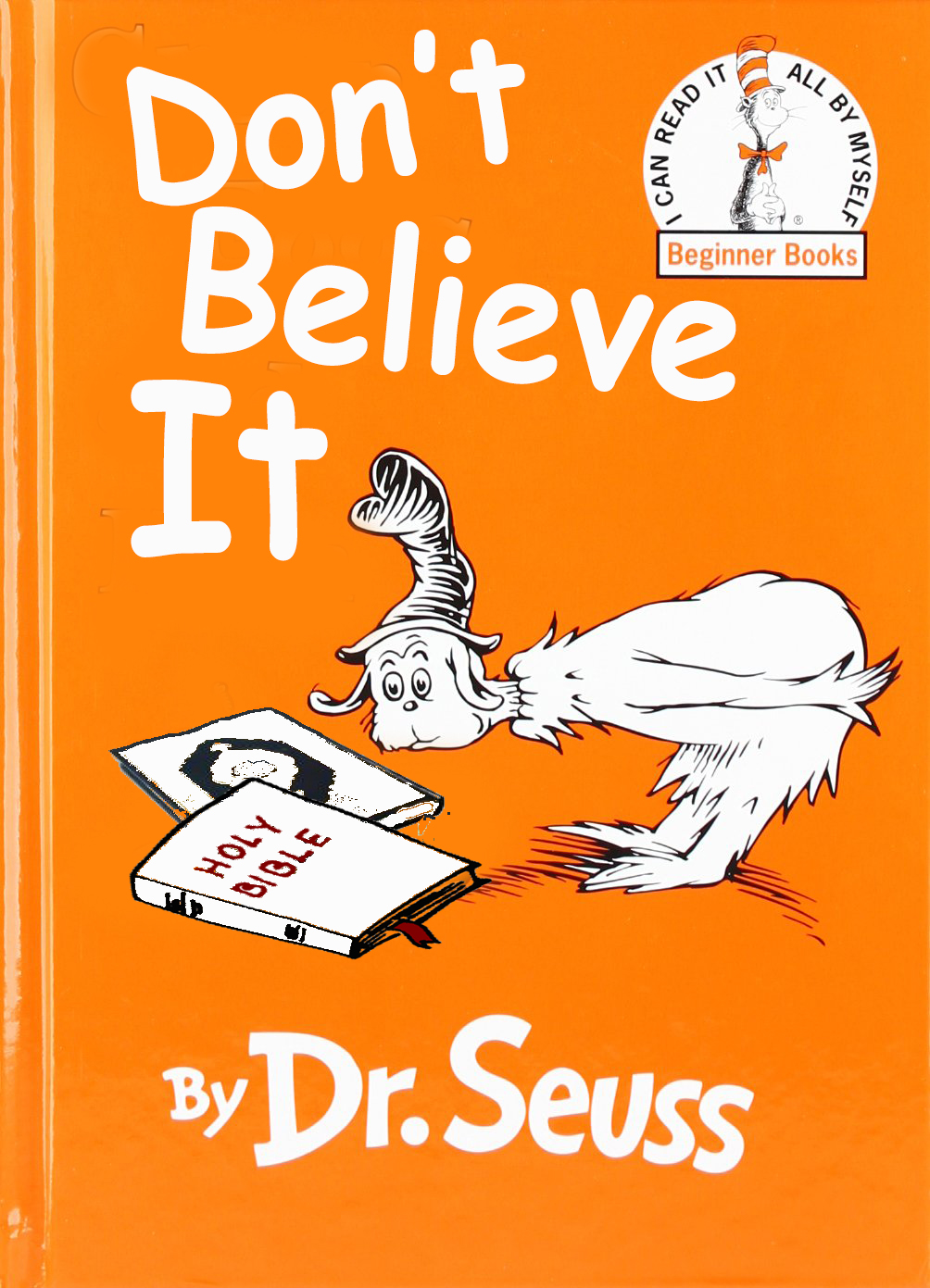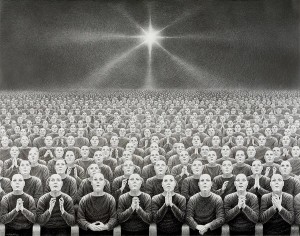It seems the human brain challenges us with the task of separating our real world experiences from dreams and other experiences that have no direct connection to reality. Of course, if you get right down to it, everything we experience occurs between our ears so there is a fine line in defining fantasy from reality. What is interesting is that different people seem to have different parameters for where they are willing to draw that fine line. For some, reality extends well beyond the physical world we can see, touch, smell and interact with to the inner world of emotional fulfillment. For them, it is perfectly rational to believe godlike beings like ourselves exist even though they have never had any sensory contact with such entities where the only evidence of their existence occurs on the fantasy side of the reality line. Interestingly, we are able to identify those who those who live in a delusional world as being mentally ill though that diagnosis is tied to the degree of trouble separating fantasy from reality. Belief in gods appears to be a somewhat acceptable fantasy so long as that delusion does not extend into sensory illusions where one starts seeing and interacting with imaginary deities.
Delusions are irrational beliefs, held with a high level of conviction, that are highly resistant to change even when the delusional person is exposed to forms of proof that contradict the belief. Non-bizarre delusions are considered to be plausible; that is, there is a possibility that what the person believes to be true could actually occur a small proportion of the time. Conversely, bizarre delusions focus on matters that would be impossible in reality. For example, a non-bizarre delusion might be the belief that one’s activities are constantly under observation by federal law enforcement or intelligence agencies, which actually does occur for a small number of people. By contrast, a man who believes he is pregnant with German Shepard puppies holds a belief that could never come to pass in reality. Also, for beliefs to be considered delusional, the content or themes of the beliefs must be uncommon in the person’s culture or religion. Generally, in delusional disorder, these mistaken beliefs are organized into a consistent world-view that is logical other than being based on an improbable foundation.
In addition to giving evidence of a cluster of interrelated non-bizarre delusions, persons with delusional disorder experience hallucinations far less frequently than do individuals with schizophrenia or schizoaffective disorder .
Being born into a world where a belief in gods is seen as a positive character trait challenges us to reconcile the dependency that says faith is an exception to the rule that separates fantasy and delusions from reality. It often takes years to reach an understanding that rationally accounts for belief in gods where that understanding puts such beliefs back over the fantasy line where they belong.
Read more: http://www.minddisorders.com/Br-Del/Delusional-disorder.html#ixzz5GWWKHEmf























